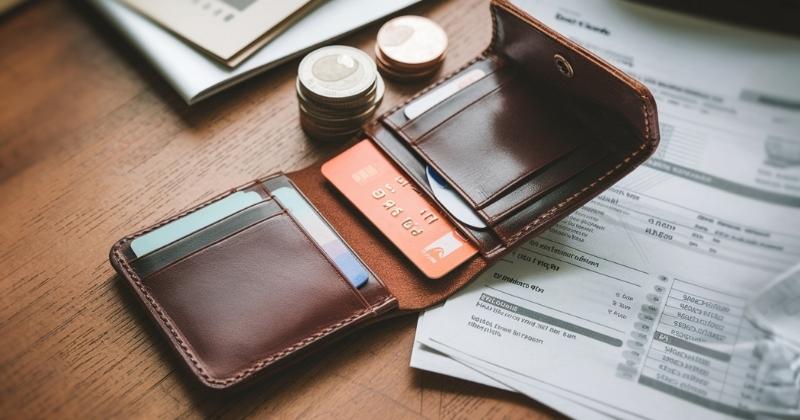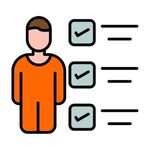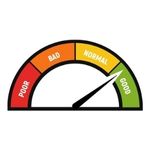
Getting a credit card with a bad credit rating (bad credit) in South Africa can be difficult, but it is possible. Many banks and financial institutions offer credit cards designed for people with low credit scores or limited credit history. These cards help individuals rebuild their credit while still providing the benefits of a regular credit card, such as making online payments, managing short-term expenses, and improving financial flexibility.
Key Takeaways
- Credit cards for people with bad credit have lower limits and higher interest rates: These cards help rebuild credit when used responsibly. Regular on-time payments and minimal debt utilisation can help enhance your credit score over time.
- Secured, low-limit, and store credit cards are available for those with bad credit: If you can’t qualify for a credit card, personal loans, overdrafts, and credit-building loans can be useful alternatives.
- Comparing fees, interest rates, and benefits is essential when choosing a credit card: Options like the Standard Bank Blue Credit Card, Capitec Credit Card, and Sanlam Money Saver Credit Card offer different features suited to various financial needs.
About Arcadia Finance
Get your loan approved seamlessly with Arcadia Finance. No application fees, just easy access to 19 trusted lenders, all compliant with South Africa’s National Credit Regulator. Fast, reliable, and tailored to your financial goals.
How Do Credit Cards Work?
A credit card allows you to borrow funds up to a set limit whenever needed. The bank or lender provides credit to cover purchases of goods or services, and you must repay the borrowed amount in monthly instalments. These repayments also include interest charges, which are calculated as a percentage of the outstanding balance each month.
Unlike a personal loan, which provides a lump sum upfront, a credit card gives you access to credit on an as-needed basis. For example, if you take out a personal loan of R5 000, the full amount is deposited into your account immediately, and interest starts accumulating from day one. However, with a credit card limit of R5 000, interest is only charged on what you spend of that amount. Additionally, many credit cards offer a grace period, allowing you to avoid interest charges if the full balance is repaid before the due date.

What Is a Credit Card for Bad Credit?
A credit card for bad credit is specifically designed for individuals with a low credit score or limited credit history who may struggle to qualify for standard credit cards. These cards function like regular credit cards, allowing users to make purchases, withdraw cash, and manage expenses. However, they typically come with lower credit limits and higher interest rates since lenders view applicants with bad credit as higher risk.
Differences from Standard Credit Cards
Unlike standard credit cards, which are available to individuals with strong credit histories, credit cards for bad credit have stricter conditions to reduce financial risk for lenders. They usually offer a lower credit limit, ensuring that users cannot accumulate excessive debt. The interest rates on these cards are often significantly higher due to the increased risk of default. Some options may also require a security deposit, making them secured credit cards, which act as collateral in case of non-payment. Additionally, these credit cards generally provide fewer benefits compared to premium cards, such as cashback or travel rewards.
Struggling with bad credit but still need a credit card? You might be surprised to learn that some options are far more accessible than others. Find out which banks and lenders offer the easiest credit card to get in South Africa—designed specifically for individuals who may not have a perfect credit score but need financial flexibility.
How These Cards Help Rebuild Credit
A credit card for bad credit can be an effective tool for improving creditworthiness. By using the card responsibly and repaying the balance on time, the lender reports positive payment behaviour to credit bureaus. Over time, this can help improve your credit score, making it easier to qualify for better financial products. Keeping credit utilisation low by avoiding maxing out the card and paying off the full balance each month can further support credit improvement. With responsible use, a credit card for bad credit can lead to higher credit limits and better borrowing options in the future.
Even if you have bad credit, meeting basic credit card application requirements can still improve your chances of approval.
How to Qualify for a Credit Card with Bad Credit in South Africa
Getting a credit card with bad credit is possible, but lenders have specific requirements to minimise risk. Meeting these criteria improves your chances of approval.

Basic Eligibility Criteria
Applicants must be at least 18 years old, have a valid South African ID, and a bank account for repayments. Some lenders may also require proof of residence.
Lenders need proof of stable income to ensure affordability. Most require a monthly income of at least R3 500 to R5 000. If you earn less, you may need to consider secured credit cards that require a deposit.

Credit Score Considerations
A low credit score does not mean automatic rejection, but it affects the credit limit and interest rate you receive. Some cards cater to individuals with bad credit, though those with severe defaults or blacklisting may have fewer options.

Affordability Assessments
Banks assess your income, expenses, and debt obligations to determine if you can handle repayments. If your debt-to-income ratio is too high, you may get a lower credit limit or be declined. Paying off existing debt and managing expenses responsibly can improve approval chances.
If you’re considering an FNB credit card but are unsure about the features and benefits, our detailed FNB Credit Cards Review covers everything you need to make an informed decision. Learn how their offerings stack up against competitors and find a card suited to your needs.

Types of Credit Cards Available for People with Bad Credit
Several credit card options are available for South Africans with bad credit. While these cards often have higher interest rates and lower limits, they can help rebuild credit when used responsibly.
Secured Credit Cards
A secured credit card requires a collateral deposit, which determines the credit limit. If you deposit R3 000, your limit will usually match that amount. These cards work like regular credit cards, allowing purchases and repayments, but are easier to qualify for since they reduce the lender’s risk.
Payment activity is shared with credit bureaus, potentially enhancing your credit score. However, they require upfront funds and still carry high interest rates. Some banks in South Africa offer secured credit cards, though they are less common than unsecured options.
Low-Limit Credit Cards
Low-limit credit cards are unsecured but have a small credit limit, usually between R1 000 and R5 000. They allow controlled spending and help build a positive credit history if used responsibly.
These cards typically come with higher interest rates, but making on-time payments can gradually increase your credit score. Some South African banks offer low-limit credit cards for applicants with fair or poor credit.
Store and Retail Credit Cards
Retailers issue store credit cards that can only be used at specific stores or partner outlets. These are generally easier to qualify for than traditional credit cards, making them a good option for those with bad credit.
Store cards offer discounts and promotions, but they have high interest rates and limited usability. Several major South African retailers provide store credit cards that accept applicants with low credit scores.
Prepaid Credit Cards vs. Traditional Credit Cards
A prepaid credit card differs from a traditional one as it does not involve borrowing money. Instead, funds are loaded onto the card, and spending is limited to the available balance.
Prepaid cards do not help build credit since they are not linked to a credit bureau. However, they provide secure online payments and budgeting control. Some South African banks and financial providers offer prepaid cards that work locally and internationally.
If you’re struggling with a low credit score but still want to enjoy rewards, there are specific options available. While some cards cater to individuals with bad credit, it’s worth checking out the Best Credit Card for Cashback in South Africa to see if you qualify for cashback benefits that can put money back in your pocket.
Best Credit Cards for Bad Credit in South Africa
Finding a suitable credit card when you have bad credit in South Africa can be challenging, but several options are designed to help individuals rebuild their credit profiles. Below is a comparison of some top choices, highlighting their features, interest rates, fees, and benefits.
| Credit Card | Minimum Income Requirement | Interest-Free Period | Monthly Fee | Initiation Fee | Key Features | Best For |
|---|---|---|---|---|---|---|
| Standard Bank Blue Credit Card | R5 000 | Up to 55 days | R40 | R190 | Secure online shopping, worldwide acceptance, UCount Rewards | Everyday spending and earning rewards |
| African Bank Gold Credit Card | Flexible | Up to 60 days | Low | Varies | Global acceptance, competitive interest rates, credit rebuilding | Improving credit score |
| Capitec Credit Card | R3 000 | Up to 55 days | Low | Low | 1% cashback on purchases, simple fee structure | Cashbacks and simplicity |
| Sanlam Money Saver Credit Card | R3 000 | Varies | Moderate | Varies | Up to 2.5% cashback, no complex loyalty tiers | Cashback rewards |
How to Choose the Right Card:
When selecting a credit card for bad credit, consider factors such as fees, rewards, and approval requirements. If your goal is to improve your credit score, opt for a card that offers interest-free periods and low fees. If you prefer cashback benefits, the Sanlam Money Saver Credit Card or Capitec Credit Card may be ideal.
If you’re looking for a credit card but have a low credit score, choosing the right one is crucial. The Capitec Credit Card is an option worth considering, as it offers competitive rates and flexible requirements. Check out this in-depth Capitec Credit Card Review to see if it suits your financial needs.
Alternatives to Credit Cards for People with Bad Credit
If you can’t qualify for a credit card, there are other ways to access credit and improve your financial standing.
Overdraft Facilities
An overdraft facility allows you to spend more than your available bank balance, providing quick access to extra funds. While useful for short-term cash flow issues, overdrafts often come with high interest rates and fees, making it essential to repay them quickly. Some banks offer overdrafts to individuals with bad credit based on income and account history.
Personal Loans for Bad Credit
Several lenders provide personal loans for individuals with bad credit, though at higher interest rates. These loans come with structured repayment plans, making them a practical option for rebuilding credit if payments are made consistently. Always check the terms, fees, and repayment schedule before applying to ensure affordability.
Credit-Building Loans
A credit-building loan helps improve your credit score by requiring fixed monthly payments before the funds are released. This structure encourages responsible repayment habits, which are reported to credit bureaus. Many credit unions and alternative lenders offer these loans, making them a useful tool for credit recovery.
Tips for Using a Credit Card to Rebuild Your Credit
If you have a credit card despite bad credit, using it wisely can help restore your financial standing.
- Make Timely Payments: On-time payments are crucial for improving your credit score. Missing payments can lead to penalties and further damage your credit. Set up automatic payments or reminders to ensure you never miss a due date.
- Keep Balances Low: Your credit utilisation ratio should stay below 30% of your credit limit. If your limit is R5 000, keeping your balance below R1 500 shows lenders that you manage credit responsibly.
- Avoid Unnecessary Spending: Using a credit card for non-essential expenses can lead to debt accumulation. Stick to planned purchases and avoid maxing out your credit limit, as high balances can lower your credit score.
- Check Your Credit Report Regularly: Monitoring your credit report helps track progress and spot errors. In South Africa, you’re entitled to one free credit report per year from bureaus like Experian, TransUnion, and Compuscan. Identifying and disputing incorrect information can prevent unnecessary damage to your credit score.
Conclusion
Getting a credit card with bad credit in South Africa is possible, but it requires careful consideration of available options, interest rates, and fees. Whether you choose a secured, low-limit, or store credit card, responsible usage is key to rebuilding your credit profile. Making timely payments, keeping balances low, and monitoring your credit report can gradually improve your credit score, giving you access to better financial products in the future. If a credit card isn’t an option, alternatives like personal loans, overdraft facilities, and credit-building loans can also help improve your financial standing.
Frequently Asked Questions
Yes, but options are limited. Some banks may offer secured credit cards that require a deposit, while others may approve low-limit credit cards if you meet income and affordability requirements.
Yes, as long as you make regular payments on time. Most secured credit cards report to credit bureaus, helping you build a positive credit history over time.
Credit improvement depends on your payment history and credit usage. Consistently paying on time and keeping balances low can show noticeable improvements in 6 to 12 months.
Missing a payment can result in late fees, increased interest rates, and a negative mark on your credit report. This can lower your credit score and make it harder to qualify for future credit.
Yes, store credit cards are often easier to qualify for than traditional credit cards and can help build credit if payments are made on time. However, they usually come with high-interest rates and limited usability.
Fast, uncomplicated, and trustworthy loan comparisons
At Arcadia Finance, you can compare loan offers from multiple lenders with no obligation and free of charge. Get a clear overview of your options and choose the best deal for you.
Fill out our form today to easily compare interest rates from 19 banks and find the right loan for you.



